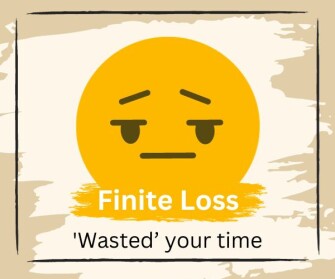At some point along my journey as an educator, I made the conscious choice to believe that student laziness is a myth. But, Kyle, … come on. Surely, you’ve had lazy students in your class. EVERY class has those students. I must confess, on the surface, it sounds naive, shortsighted, and even downright foolish. One might argue that I allow myself to be duped and that I am far too easy on my students. Like anything, there is much that lies beneath the surface.

Let’s dig into how I arrived at this seemingly unrealistic belief. But before we do, I must share another key belief as it has shaped much of what I do: Our beliefs drive our behaviors.
If you believe in the power of formative feedback, you are likely to take a significant portion of your time to provide constructive, meaningful, and action-oriented comments on your students’ work. You are also likely to confer with your students, one-to-one, on how best to implement your suggestions or how to take the next steps. If you believe that the teacher is the ultimate authority in the class, you are likely to have rigid behavior-management strategies in place. If you believe the school/home partnership is crucial in the success of every student, you are likely to engage in open and timely communication with parents.
Whatever your beliefs, they drive your behaviors.
The belief that laziness exists will limit the behavior of any teacher who encounters it, and that is harmful. Essentially, it is a teacher’s get-out-of-jail-free card: If a student does not complete a task on time, and if laziness is the culprit, then giving a zero or assigning detention is the right tool for the job. Laziness, as a character trait, is something that needs to be punished in one way or another, for if left alone, it will only grow into the impediment of a successful life beyond school.
The viewpoint that a given student is lazy leaves no room for inquiry, no room to investigate, no room to discover what really may have gotten in the way of that student’s success. On the other hand, when a teacher holds firmly to the belief that laziness is a myth, they are compelled to inquire: What stopped my student from succeeding?
The answer could be related to a myriad of issues. The student might be struggling with self-efficacy, dealing with anxiety, or managing an undiagnosed learning difference. The potential struggles of today’s students could undoubtedly be the nature of a blog post in-and-of-itself. The point here is that the belief that laziness is a myth compels an educator to take action. It compels an educator to connect more deeply with their student. It compels an educator to discover the underlying cause of student failure.
Fast forward into my journey into educational leadership. I shared this belief with colleagues early on, and, as one can imagine, it got a few side-eyed looks. I can vividly remember having this conversation with a particularly energetic chemistry teacher who had an extraordinary pragmatic and logical world view. How on earth was I to convince him that laziness is a myth? Then it hit me—Pascal’s Wager!
Allow for a brief interlude for those of us who are not fully up on our 17th-century French philosophers. The following is no doubt a watered-down version of the overall premise, BUT it serves as the foundation of my argument on why it is a safe bet to believe that laziness is a myth. However, Pascal was not discussing the existence of laziness but rather that of God.
For Pascal, the wager was simple. A person either believes God exists, or does not. The case of God’s existence is equally simple: God either does or does not exist. The outcomes are therefore only four and have been placed into the following matrix to demonstrate the results of either gain or loss in an infinite or finite amount. Before continuing the read, do spend a moment to fully comprehend the four quadrants, assessing the outcomes of belief in and existence of God.

If we take God out of this equation and enter laziness, something magical happens! If a teacher believes in laziness, and the student IS in fact lazy, there is a finite gain. Essentially, the teacher is RIGHT. There is an I told you so! attitude. But this gain is finite. The only benefit, if there even is one, is that the teacher pegged the student correctly.

If a teacher does not believe in laziness, but the student IS in fact lazy, there is a finite loss. The teacher will take active steps to understand the student on a deeper level, they will try to break through the thick outer shell, but alas, … they will fail. The ultimate outcome is that they have simply wasted their time.

If a teacher believes in laziness, but the student IS NOT lazy, there is infinite loss. This is the classic example of a student slipping through the cracks. Whether they lacked confidence, organization, or time-management skills, the teacher will never know. The compounding loss of learning and damage to confidence in oneself can have lifelong impact.

If a teacher does not believe in laziness, and the student indeed IS NOT lazy, there is infinite gain. This is where connections are born, where teachers make a difference, and where students shine!

The wager is a simple one. ALWAYS bet on your students. You, and more importantly they, have everything to gain and nothing to lose!






